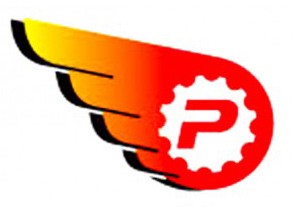More details emerge of financial issues surrounding departed backer
 Pegasus Sports owner Chris White has said that he still believes there is time to save the Australian team, which is battling to raise the necessary cash after its chief backer pulled out last week.
Pegasus Sports owner Chris White has said that he still believes there is time to save the Australian team, which is battling to raise the necessary cash after its chief backer pulled out last week.
White and the rest of the team have been left high and dry after the American businessman George Gillett Jr. reversed his previous decision to back the squad in its bid to gain a ProTeam licence and ride the Tour de France.
It was unsuccessful in gaining that licence, but still had a chance of being selected for the race through the wildcard system. Things got more serious when Gillett decided to withdraw his backing, this meaning that there is a real chance the team could collapse before even starting its first race.
White and the rest of the management are doing what they can to turn things around prior to Wednesday’s final deadline.
“It’s a manageable number in the time we have got,” White insisted, speaking to Sydney Morning Herald journo Rupert Guinness. “We’ve got a strategy in place that we have implemented since last Friday, and we are working through that as an organisation. There are a number of avenues open to us. We are exploring all avenues.”
However, according to the Herald, the team is currently aiming to raise the cash necessary to raise the bank deposit stipulated by the UCI. If it does achieve that, it will still need to raise more funds; White has said that he is confident that more backers will come on board, either once it gets the Pro Continental licence, or once it begins racing.
Things are quite a bit more vague than the he, the staff and the riders would have expected. Still, he said they are all determined to keep pushing until the cut-off date.
“There’s not one person, from our head mechanic through to [chief sports director] Hendrik Redant, that isn’t completely engaged on making this happen,” he said. “My advice to them in managing their careers would be: ‘Please ensure you have got another option should the need arise. I completely understand that. But please, in the short term, as we head towards the UCI deadline, continue to have faith in that program.’ And I have that.”
Why did backer walk?
There’s a number of reasons why the main backer may have decided not to go through with his plans. The theories include the fact the team didn’t get a ProTeam licence, and that it doesn’t have a guarantee of doing the Tour de France in 2011.
To be fair to White, he has never publicly said that either was certain for 2011. As far back as last summer, he said that he was hoping to get ProTeam status but accepted the team might have to race as a Pro Continental squad during its first season.
Other suggested reasons are unease over the negative publicity arising out of the Alberto Contador positive, which was said to be the reason why the team’s scheduled presentation during the world road race championships didn’t take place.
White hasn’t said much on the issue, and declines to confirm that Gillett is the backer in question. Several sources have however confirmed that he was to be the main source of funding.
Those aforementioned possibilities aside, there is another more likely reason why the American opted to walk away.
He took a large financial hit in October when he and colleague Tom Hicks lost possession of Liverpool Football Club. Then in November, Forbes revealed that the lending firm Mill Financial was suing Gillett for breach of guarantee, claiming the Colorado financier personally owed $117 million.
Gillett Football LLC is said to have borrowed $70 million in a January 2008 term loan from Mill Financial, with the money to be used in purchasing Liverpool FC. That loan became due last August 13th but, despite a prior indication that it would be paid in full by that time, Mill claims this was not achieved.
Details of the complaint suggested that the company had entered into a high yielding loan to Gillett that carried a 19% annual interest rate. Once fees were added on, Mill Financial claimed that the amount due is $117 million.
Those financial headaches may well be a big factor in what has happened. The team has said that a binding agreement was in place; depending on what terms were agreed, it may have the chance of taking the matter through the courts. However that’s an issue that would take quite an amount of time to settle; a far more pressing concern is to try to raise funding elsewhere and fulfil the UCI’s requirements prior to Wednesday’s final cut-off date.